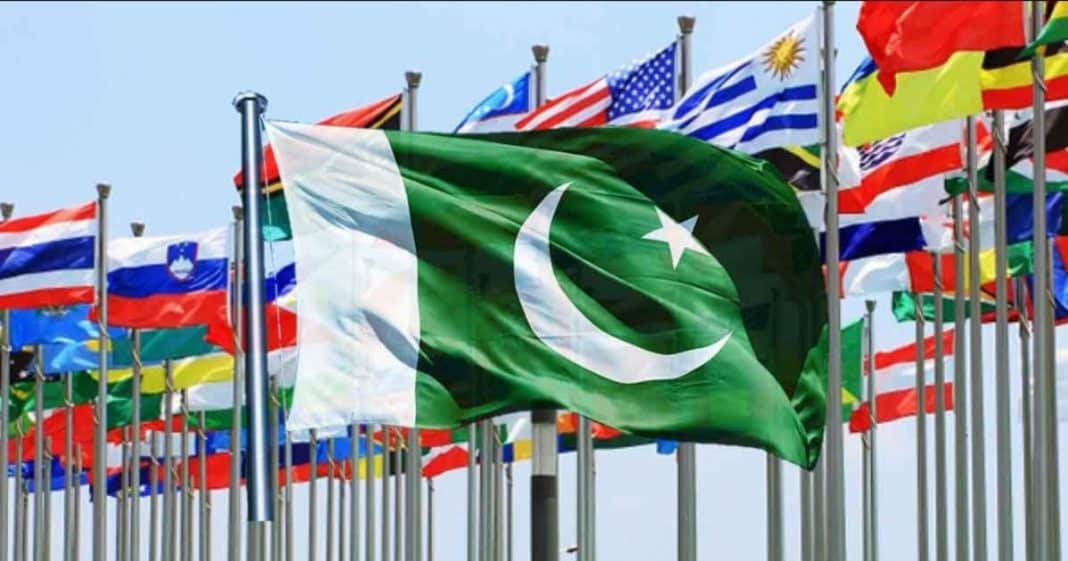
To become an economic superpower, Pakistan would need to implement a comprehensive and well-rounded strategy that addresses various aspects of its economy. While transforming into an economic superpower is a long-term and complex goal, here are some key areas that Pakistan could focus on:
1. Infrastructure Development:
Invest in building modern infrastructure, including roads, ports, airports, railways, and telecommunications. This will improve connectivity within the country and enhance its integration with the global economy.
2. Education and Skill Development:
Prioritize education and skill development to create a highly skilled and competitive workforce. Emphasize science, technology, engineering, and mathematics (STEM) education, vocational training, and entrepreneurship programs to foster innovation and productivity.
3. Economic Diversification:
Reduce reliance on traditional sectors like agriculture and textiles by diversifying the economy. Encourage the growth of industries such as information technology, pharmaceuticals, renewable energy, manufacturing, and services to create new avenues for economic growth.
4. Investment in Research and Development:
Allocate resources to research and development (R&D) to foster innovation and technological advancements. Encourage collaboration between academia, industry, and research institutions to develop cutting-edge technologies and products.
5. Ease of Doing Business:
Improve the ease of doing business by streamlining regulations, reducing bureaucratic hurdles, and creating a favorable investment climate. Simplify taxation processes, protect intellectual property rights, and ensure transparency and accountability in governance.
6. Encourage Foreign Direct Investment (FDI):
Implement policies to attract foreign direct investment by offering incentives, providing a secure business environment, and ensuring protection of investments. Build strategic partnerships with other countries to facilitate technology transfer, knowledge sharing, and market access.
7. Strengthen Trade Relations:
Enhance trade relations with neighboring countries and explore new markets globally. Negotiate favorable trade agreements, diversify export products, and focus on value-added exports to boost foreign exchange earnings.
8. Infrastructure for Energy Sector:
Develop a robust and sustainable energy infrastructure to meet the growing energy demands of the country. Invest in renewable energy sources, such as solar and wind, to reduce dependence on fossil fuels and promote environmental sustainability.
9. Good Governance and Anti-Corruption Measures:
Establish a transparent and accountable governance system. Strengthen institutions, promote the rule of law, and implement effective anti-corruption measures to ensure a level playing field for businesses and investors.
10. Social Development and Poverty Alleviation:
Prioritize social development programs to reduce poverty, improve healthcare, and provide quality education for all. A well-educated and healthy population will contribute to productivity and economic growth.
11. Strengthen Financial Sector:
Develop a robust and inclusive financial sector to support economic growth. Improve access to credit for small and medium-sized enterprises (SMEs) and encourage the growth of capital markets. Implement effective banking and financial regulations to ensure stability and investor confidence.
12. Entrepreneurship and Start-up Ecosystem:
Foster a culture of entrepreneurship and innovation by providing support and resources to start-ups and small businesses. Establish incubation centers, venture capital funds, and mentorship programs to nurture entrepreneurial talent and facilitate the growth of innovative enterprises.
13. Improve Governance in State-Owned Enterprises:
Enhance governance and efficiency in state-owned enterprises (SOEs) to reduce inefficiencies and improve their performance. Introduce professional management practices, implement transparency measures, and promote accountability in SOEs to maximize their contribution to the economy.
14. Enhance Agriculture Productivity:
Modernize agriculture practices, invest in research and development for improved seeds and technologies, and provide farmers with access to credit, irrigation, and market information. Promote value addition in the agriculture sector to increase export earnings and create employment opportunities.
15. Promote Tourism:
Leverage Pakistan’s rich cultural and natural heritage to develop a thriving tourism industry. Invest in infrastructure, promote tourist-friendly policies, and market the country’s historical sites, landscapes, and adventure tourism to attract international tourists and generate revenue.
16. Strengthen Regional Cooperation:
Enhance regional cooperation and connectivity through initiatives like the China-Pakistan Economic Corridor (CPEC) and regional trade blocs. Explore opportunities for trade and investment with neighboring countries to leverage geographical advantages and promote economic integration.
17. Sustainable Development:
Adopt sustainable development practices by promoting green technologies, conservation of natural resources, and climate change mitigation measures. Invest in renewable energy, promote eco-friendly industries, and implement policies to reduce carbon emissions for long-term environmental sustainability.
18. Human Capital Development:
Prioritize investment in healthcare and social welfare programs to improve the quality of life and productivity of the population. Enhance access to quality healthcare services, promote nutrition programs, and invest in skill development to create a healthy and skilled workforce.
19. Public-Private Partnerships:
Foster collaboration between the public and private sectors to leverage their respective strengths. Encourage private sector participation in infrastructure projects, research and development initiatives, and social development programs to enhance efficiency and resource utilization.
20. Continuous Evaluation and Adaptation:
Regularly evaluate the progress of implemented policies and make necessary adjustments based on evolving economic trends and global dynamics. Continuously monitor key indicators such as GDP growth, employment rates, exports, and foreign investment to ensure the effectiveness of strategies and make informed decisions.
By focusing on these areas and implementing a comprehensive economic development strategy, Pakistan can gradually strengthen its economy, attract investments, create jobs, and improve the standard of living for its citizens. It is important to approach this goal with a long-term perspective, sustained commitment, and active participation from all stakeholders.
Also Read: Why Imran Khan Poses a Threat to the State of Pakistan

Crafting words to inspire, engage and motivate. 10+ years of content writing, SEO, digital marketing and blogging experience. Ready to help your brand reach its potential!

